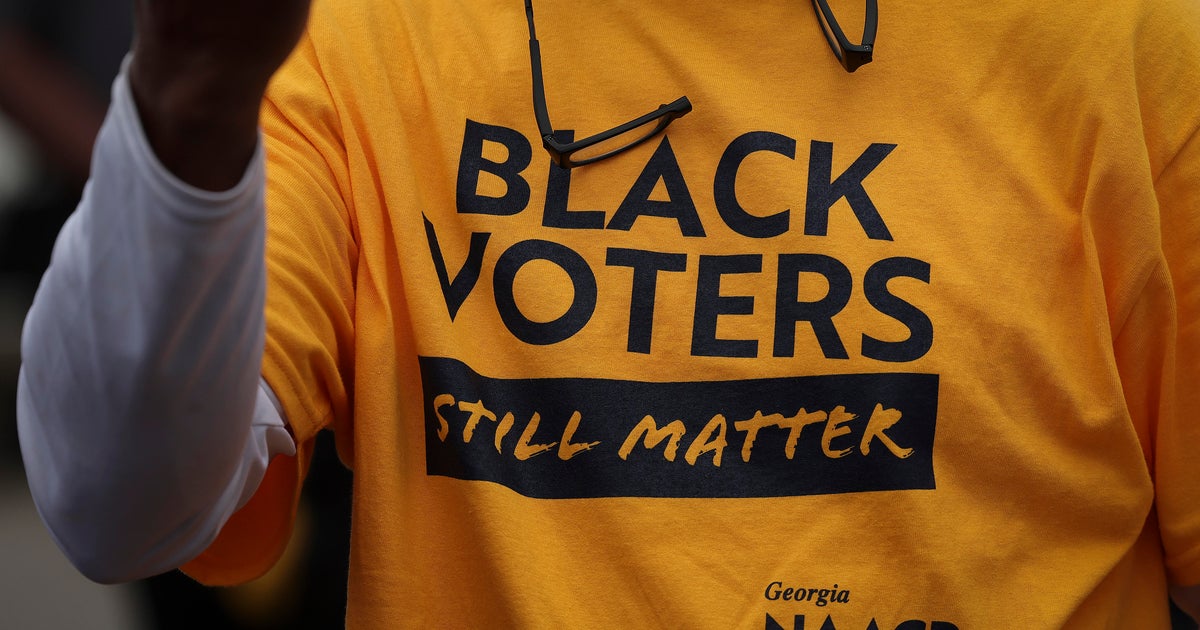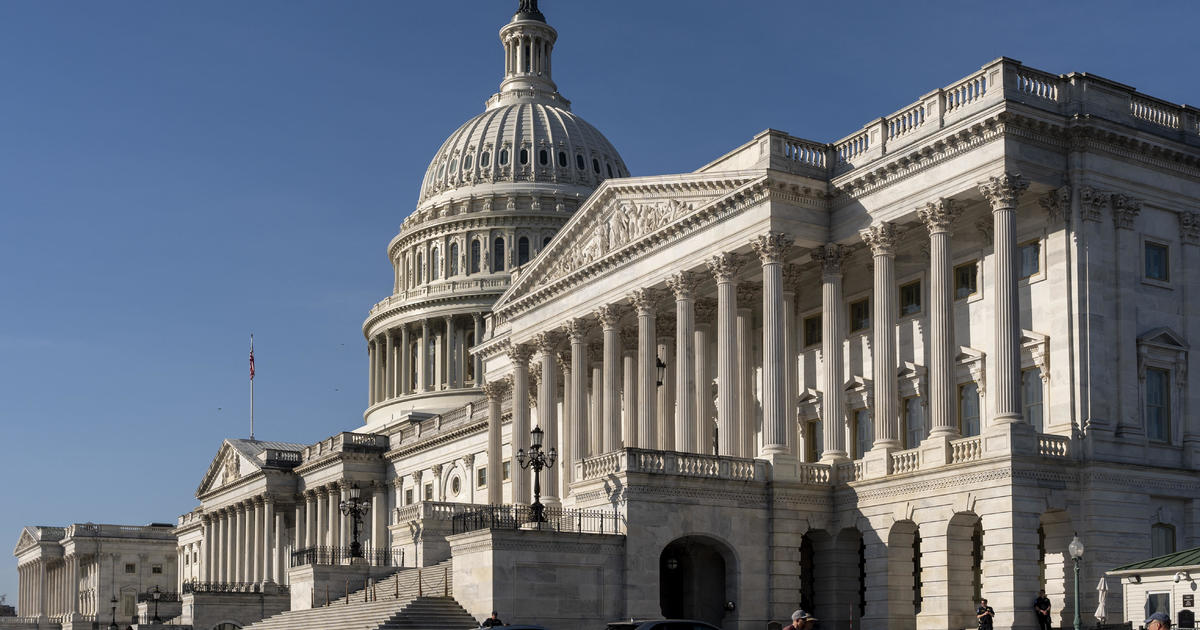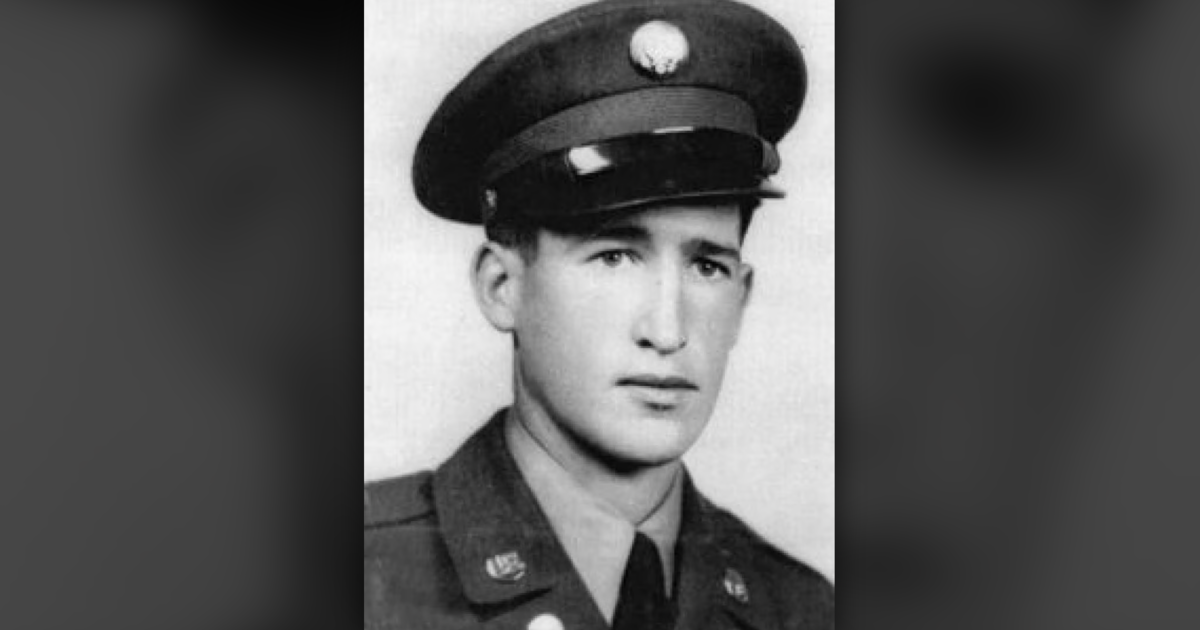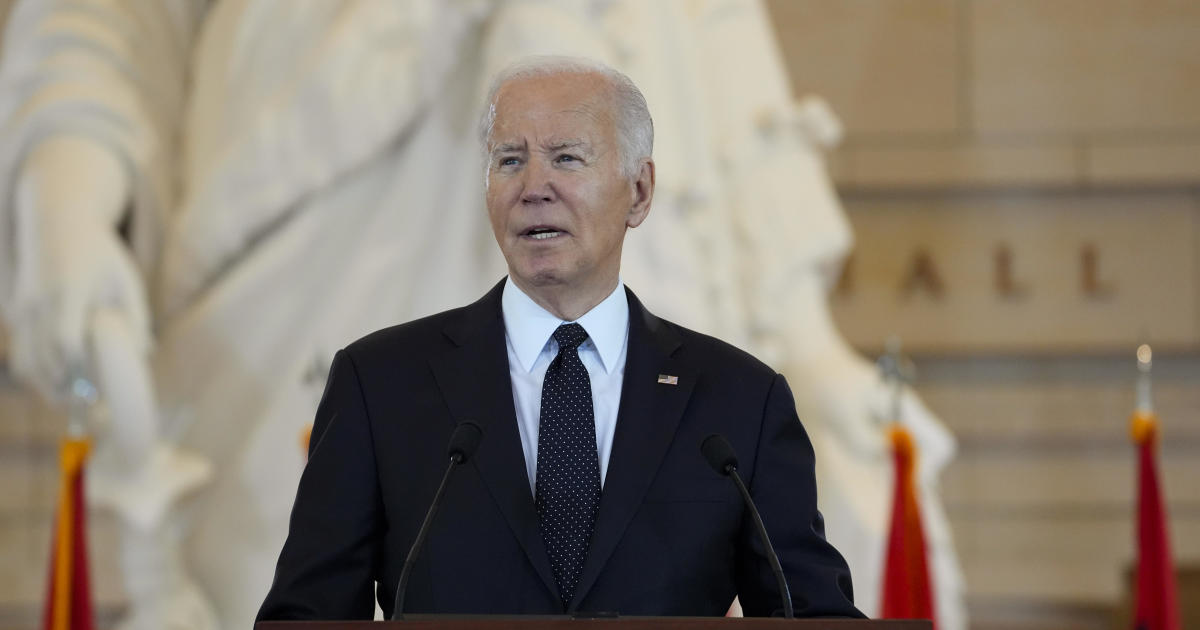Veepstakes in the age of coronavirus
Even as a pandemic has trapped voters and candidates indoors and consumed American politics, one key element of the presidential campaign may remain virtually unaltered: the vice presidential selection process.
Presumptive Democratic nominee Joe Biden has said he is modeling his vice presidential search after the efforts of past Democratic presidential campaigns, including the vetting discreetly helmed by Eric Holder and Caroline Kennedy in 2008 that yielded his own selection to President Barack Obama's ticket.
Biden must make the choice at an unprecedented time for American politics, when typical campaign rallies have been replaced with virtual town halls from his Delaware home. But while much of traditional campaigning is reliant on door knocking and voter interactions, the process that has informed recent vice presidential campaigns was done remotely to begin with.
Sources with insight into the "pre-vetting" process tell CBS News that Biden's picks have further winnowed since March, when the former vice president told "The View" that his shortlist hovered around 11 women, citing the immense resources required to investigate each candidate.
Five to eight candidates are now being seriously considered, CBS News has learned, though the sources said a "dark horse" candidate could be added.
The former vice president has yet to publicly name who will lead the effort, which will likely be manned by a fleet of accountants and attorneys. Lawyers from Holder's powerhouse firm, Covington & Burling, already serve as counsel to Biden's presidential campaign.
"It doesn't mean that strategists inside the campaign have no input. But you want to give security to the people who are being vetted that the information they turn over will remain private," explained Bob Shrum, a top adviser to John Kerry's 2004 campaign.
The first stage of the search has likely already begun, say veterans of past vice presidential picks, with aides scouring the internet, press clippings, and public records. Similar to the routine carried out by campaign opposition research teams, this probe can largely be carried out even during quarantine.
"Oftentimes, that first and even second round of vetting is really remote. They don't even know about it. You just sort of announce they're being vetted," said Robby Mook, Hillary Clinton's 2016 campaign manager.
Once Biden's list is sufficiently narrowed, vetters need shortlisters' cooperation to continue the audition. Potential running mates must complete lengthy questionnaires, turn over troves of personal records, and submit their families to invasive interrogations of their public and private lives.
"I got a call from Senator Obama, I think it was probably late May or early June," said former Kansas Governor Kathleen Sebelius, who was extensively vetted by Mr. Obama's search in 2008. "I was in the middle of the meeting. And he basically asked me if I'd be willing to be vetted for vice president."
James Johnson, the Democratic operative who helped lead Mr. Obama's vetting process in its early days, was already waiting downstairs for Sebelius.
"He made two things very clear. First, not to talk about the process with anyone. And two, I needed to alert my family that this was coming," Sebelius said.
When Mr. Obama asked Biden, the then-Delaware senator immediately turned down the vetting offer as he feared, in part, turning into a "punchline" like some previous former vice presidents with limited duties, he wrote in his 2017 memoir. Biden called the vetting process a "difficult" decision, but after prodding by his family and a secretive trip to Minneapolis for an additional meeting, Biden felt more comfortable with the process going forward.
While a presidential candidate can sometimes overcome a blemish on his or her past by publicly confronting it, a potential vice president needs to survive vetting in a vacuum.
"Sometimes there are presidential candidates who probably would have a greater chance of being a presidential nominee than a vice presidential nominee," said Joel Goldstein, a scholar of the vice presidency who teaches at St. Louis University Law School.
Several running mate finalists recounted thorough searches by vetters, uncovering embarrassing details untouched even by other official and campaign background checks.
"I would call it skeletons and lawsuits," said former New Mexico Governor Bill Richardson, who faced vetting by the presidential campaigns of Al Gore, John Kerry, and Obama. "In other words, rumors. Sometimes you are asked directly, and you try to be as candid as you can."
One strategist familiar with Hillary Clinton's 2016 vice presidential search worried candidates being vetted this year could be wary of divulging personal information over the phone or on a video call. As past candidates have narrowed their lists to a handful of names, they or at least their trusted advisors have met with the finalists, taking extraordinary measures to keep their encounters secret and secure.
"Kerry interviewed me at the top of a warehouse before choosing Edwards in Phoenix. James Johnson held our secret meeting at a hotel room near Dulles Airport, wearing a rain jacket like those detectives do," joked Richardson.
However, social distancing wrought by the spread of COVID-19 has already reshaped one assessment: a potential running mate's performance on stage with the nominee's message.
"You need to see how each candidate matches each other at these rallies and the personal chemistry, you can't really do it virtually. You want to see the candidates in front of voters, in front of crowds," said Richardson.
Bans on large gatherings have transformed Biden's public campaign, forcing him to broadcast events online from his Delaware home.
Michigan Governor Gretchen Whitmer fueled speculation last week, joining Biden on his campaign's podcast. Another rumored running mate -- California Senator Kamala Harris -- called in Wednesday to a virtual fundraiser with Biden.
"You want someone who can do well in the vice presidential debate. Because the job of the vice presidential candidate, in their highest moment of visibility, is that debate. To go after the other nominee and the other party and do it effectively," says Shrum.
When Senator Amy Klobuchar recalled the previous Democratic debates as she endorsed Biden in early March, he interrupted her to point out "all which you won."
But beyond a pick's public chemistry with the nominee and their campaign, Democratic campaign veterans say the nominee's final decision often ends with an intensely private assessment.
"I met with Barack Obama for three and a half hours. They want to see what the comfort level is like, after all you're going to be in a foxhole together," recalled former Indiana Senator Evan Bayh.
Obama's selection in 2008 came down to Biden and Bayh, according to multiple Democrats on the campaign at the time, but an additional disadvantage plagued Bayh: a Republican governor would have selected Bayh's replacement in the Senate.
"It was an honor to be considered, but to be in that final three, anyone will tell you that it can feel like a colonoscopy. Except they use the Hubble Telescope," Bayh said.
Jack Turman contributed reporting



